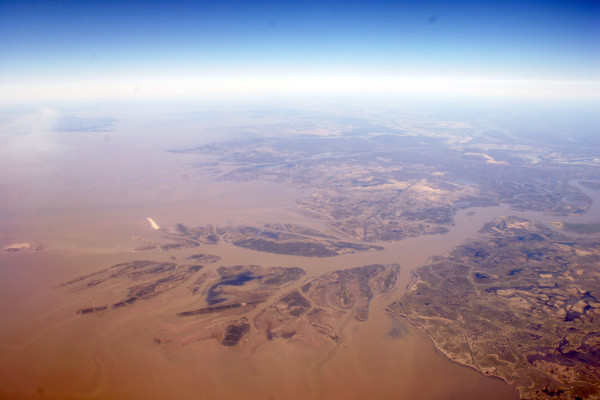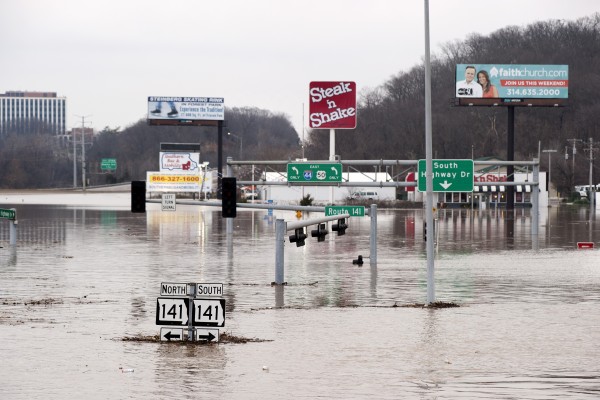A radical plan to save the delta
An international cohort of designers, engineers, hydrologists, planners and other professionals — along with a handful of Washington University faculty, students and young alumni — have won a global competition charged with developing a 100-year plan for stabilizing the Mississippi River delta. A delta, says the Sam Fox School’s John Hoal, that’s on life support.
Record Missouri flood manmade calamity
Why was the New Year’s flood in Missouri so bad? Most news reports blamed it on the heavy rain, but Robert Criss, PhD, professor of earth and planetary sciences in Arts & Sciences at Washington University in St. Louis says analysis of the flood data shows much of the damage was due to recent modifications to the river.
As the river rises: Cahokia’s emergence and decline linked to Mississippi River flooding
Sediment cores from two lakes in the Mississippi floodplain show that Cahokia, the largest prehistoric settlement in the Americas north of Mexico, emerged during a period when there were few severe floods on the river and that its decline and abandonment coincided with the return of large floods.
Archaic Native Americans built massive Louisiana mound in less than 90 days, research confirms
A massive earthen mound constructed about 3,200 years ago by Native Americans in northeastern Louisiana was built in less than 90 days, and perhaps as quickly as 30 days, according to new research in the journal Geoarchaeology. The site was recently nominated for a place on the UNESCO list of Word Heritage sites.
Hydrogeologist questions reservoir releases and blasting rock to deepen the Mississippi for barge traffic
Coverage of the recent shipping crisis on the Mississippi River assumes that the appropriate response to a problem like low water levels is to find an engineering solution. Washington University in St. Louis hydrogeologist Robert E. Criss disagrees. He feels the river has been over-engineered and that many of the engineering “solutions” are not economic if all of their costs, including those to the taxpayer and to the environment, are taken into account.
Sustainable management of big rivers is topic of Earth Day forum, April 22
Photo courtesy U.S. Army Corps of EngineersBarge traffic makes its way through a lock on the Upper Mississippi.”Our Rivers: A Sustainable Resource?” is the focus of a public education forum that four Washington University faculty will lead as part of a community-wide symposium being held in conjunction with the 5th annual St. Louis Earth Day Celebration, April 22-23. The sustainable rivers program will be held April 22 from 10:30 a.m. to 5 p.m. and will feature Washington University faculty Charles Buescher, professor of environmental engineering, Robert Criss, Ph.D., professor of earth and planetary sciences in Arts & Sciences and William Lowry, Ph.D., professor of political science in Arts & Sciences. The colloquium will provide a background history of the rivers in our region and their various uses in transportation, agriculture, power production, recreation and public water supply.



